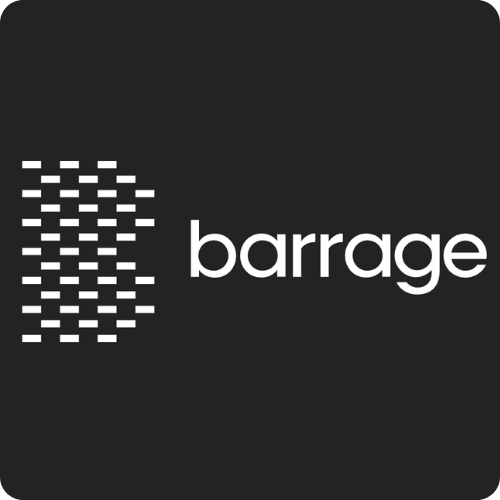
Validation Cloud
Validation Cloud is a Web3 infrastructure company that provides high-performance node, staking, and data-as-a-service solutions. Its focus is on bridging the gap between the enterprise world and the burgeoning landscape of decentralized technologies.
The company's core services are divided into three main pillars. Its Node API provides high-performance access to a wide range of leading blockchain networks, enabling developers and enterprises to build and scale their applications with reliable and low-latency connectivity. Its institutional-grade, non-custodial staking services allow clients to securely stake their assets and earn rewards across numerous Proof-of-Stake protocols. Finally, its Data x AI platform, powered by their proprietary intelligence engine, Mavrik, is designed to provide real-time, AI-driven insights from on-chain data.
Validation Cloud offers both Mirror Node-as-a-Service and a JSON-RPC Relay for Hedera, providing developers with fast and reliable access to the network's data and services. This integration is a key part of Hedera's efforts to provide a robust and developer-friendly ecosystem.
Project Information
Related Projects

The Hyperledger Fabric plugin for Hedera Consensus Service (HCS) enables Hyperledger Fabric networks to utilize the Hedera public network for transaction ordering. This plugin allows developers to replace or augment traditional Fabric ordering services such as Raft or Kafka with HCS, leveraging Hedera's asynchronous Byzantine Fault Tolerant (aBFT) consensus mechanism.
The core function of the plugin is to have Fabric orderer nodes submit endorsed transactions to a designated topic on the Hedera Consensus Service. HCS then assigns these transactions a unique, immutable, and verifiable consensus timestamp and sequence. Fabric orderers subscribe to this topic via a Hedera mirror node, retrieve the ordered transactions, and use this sequence to consistently form blocks and propagate them within the private Fabric network.
By integrating HCS, Hyperledger Fabric applications gain several benefits including enhanced trust and decentralization in the ordering process, public verifiability of transaction sequences for increased auditability, and potentially reduced operational complexity compared to managing a traditional private ordering service.

Earthlings.land is Earthlings.land is an open-world game set 400 years in the future featuring a steampunk-inspired fantasy world. Its first map spans 460 square kilometers of European inspired forests, floating islands, ancient ruins, and a bustling cityscape called New Paris.
Players are invited to dive into immersive quests, battle enemies, and enjoy fast-paced fun in a family-friendly gaming environment complete with a bespoke battle royale mode. The platform offers users the opportunity to engage with unique in-game items through Non-Fungible Tokens (NFTs).
Ownership of Earthlings.land NFTs translates to owning in-game items which can be collected and traded with fellow gamers. The in-game items are part of a dynamic economy where players can own land and take on roles such as mayor, shop owner, or airship captain.
Earthlings.land employs a dual token model featuring the $STEAM and WATER tokens built on the Hedera blockchain. The $STEAM token acts as the lifeblood of the ecosystem, fueling in-game interactions and adoption. While WATER serves as a utility token strengthening the value of $STEAM.

Barrage is a Croatia-based software development company founded in 2016. It positions itself as a "digital barrage," providing robust and high-quality digital platforms for a global clientele. With a team of over 100 professionals, Barrage specialises in creating custom software solutions, with a strong focus on fintech, data science, and AI.
The company offers a comprehensive range of services including custom software development for web and mobile, digital product design with a focus on user experience, and brand identity design. Barrage also has expertise in machine learning, data center development, and provides consulting services in distributed ledger technology.
Barrage is a Hedera ecosystem technology partner that leverages its in-depth knowledge to build solutions on the Hedera network. The company has published insights on Hedera's impact on DeFi, demonstrating a strong understanding of its architecture, including the hashgraph consensus mechanism and the "gossip about gossip" protocol. This expertise allows Barrage to develop secure, scalable, and efficient software for its clients, utilizing Hedera's enterprise-grade capabilities to create modern digital solutions.

Chainlink is a decentralized oracle network connecting smart contracts on various blockchains with real-world data, events, and off-chain computation. Its fundamental purpose is to enable hybrid smart contracts by providing them with secure and reliable access to external resources, thereby bridging the gap between on-chain and off-chain environments. Chainlink is recognized as an industry standard for building, accessing, and selling oracle services.
The platform offers a comprehensive suite of services to developers and enterprises. These include “Chainlink Price Feeds,” which deliver accurate and tamper-proof financial market data to DeFi applications, “Chainlink VRF” (verifiable random function) for generating provably fair randomness essential for NFTs and blockchain gaming, and “Chainlink Automation,” which provides decentralized and reliable smart contract automation. Furthermore, “Chainlink Functions” allow smart contracts to connect to any external API and run custom computations, while the cross-chain interoperability protocol (CCIP) facilitates secure data and token transfers across different blockchain networks. Chainlink Proof of Reserve offers automated verification of on-chain and off-chain reserves.
